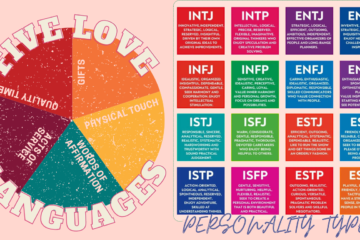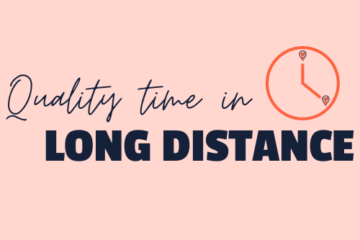In every relationship, both individuals have their own unique personalities. While this diversity can be a source of strength and compatibility, it can also introduce challenges—especially when one partner has a Type A personality while the other is Type B. By understanding these personality types and their different approaches to relationships, couples can better navigate their relationship and connection.
Understanding Type A and Type B Personalities
Type A and Type B personality theory was developed by cardiologists Meyer Friedman and Ray Rosenman in the 1950s. Broadly speaking:
- Type A personalities tend to be ambitious, competitive, highly organized, and often driven by a strong sense of time urgency. They’re usually task-oriented and prefer routines, schedules, and clear goals.
- Type B personalities, on the other hand, are more relaxed, go-with-the-flow types. They value experiences over accomplishments, tend to be more laid back, and are often more adaptable in their approach to tasks and challenges.
Each personality type comes with unique strengths and challenges, especially in relationships. Learn more about the discovery of these types of personalities on Simply Psychology. For now, let’s take a closer look at how they play a role in relationships.
Type A in Relationships
Type A traits commonly show up in the following ways:
- Goal-Oriented Focus: Type A personalities are often clear about what they want in a relationship and are driven to achieve it—whether it’s progressing in the relationship or planning future goals, they like meeting milestones as a couple.
- Routine and Structure: Type A individuals thrive on routine, which can bring a sense of stability and predictability. They’re likely to plan dates, prioritize communication, and even create routines, such as weekly date nights.
- High Expectations and Standards: Type A individuals often hold themselves to high standards, which can spill over into their relationships. They may seek improvement or strive for an “ideal” relationship, leading them to focus on areas that need work, sometimes at the risk of being overly critical.
- Intensity and Passion: Type A partners can be intense in their emotions and approach to love, often bringing a lot of energy and enthusiasm. This intensity can deepen the relationship but may also become overwhelming for their partner, especially if they expect the same intensity in return.
- Conflict Management: Type A people can be quick to address issues and confront problems right away. While this can be beneficial for resolving conflicts quickly, it might be seen as aggressive if their partner is more laid back.
Type B in Relationships
Type B personalities typically show up in these traits:
- Adaptability and Flexibility: Type B people tend to be spontaneous and adaptable, which can help bring variety and excitement to the relationship. They might enjoy a last minute adventure date.
- Easygoing Attitude: The Type B personality’s relaxed nature can create a peaceful and enjoyable relationship environment. They’re less likely to stress over small issues and more likely to go with the flow, which can help balance out a Type A partner’s intensity.
- Focus on the Present: Rather than rushing toward goals, Type B personalities enjoy the moment and focus on the present. This approach can help create lasting memories and allow the couple to truly savor their time together.
- Patience and Forgiveness: Type B individuals are generally patient and slow to anger. They may avoid conflict, preferring harmony over confrontation. This patience can be a great asset in a relationship, especially when paired with a Type A partner who may have stronger reactions.
- Creative Solutions to Problems: Type B personalities often approach problems with creativity and openness, bringing fresh perspectives and a willingness to “wait things out” rather than confront them directly.
Navigating a Type A–Type B Relationship
When a Type A and Type B personality come together, they have the potential to complement each other well. However, if you and your partner have opposite personalities, it is important to be mindful of your differences and learn how to navigate them in a way that’s best for your relationship. Here are some tips to help:
- Respect Each Other’s Differences
- Establish Clear Communication in a Way That Is Comfortable for Both People
- Set Boundaries Around Stress and Find Time to Relax
- Be Patient with Differences in Handling Conflict
- Celebrate Each Other’s Strengths
Both Type A and Type B personalities have their unique strengths and challenges in relationships. While a Type A partner may bring passion and drive, a Type B partner can add calm and adaptability, making them complementary in many ways. Whether you’re Type A, Type B, or somewhere in between, embracing these qualities can strengthen your connection and deepen your understanding of each other.
Be sure to follow along for more about relationships, long distance, and dates. Sign up for our weekly email HERE.

